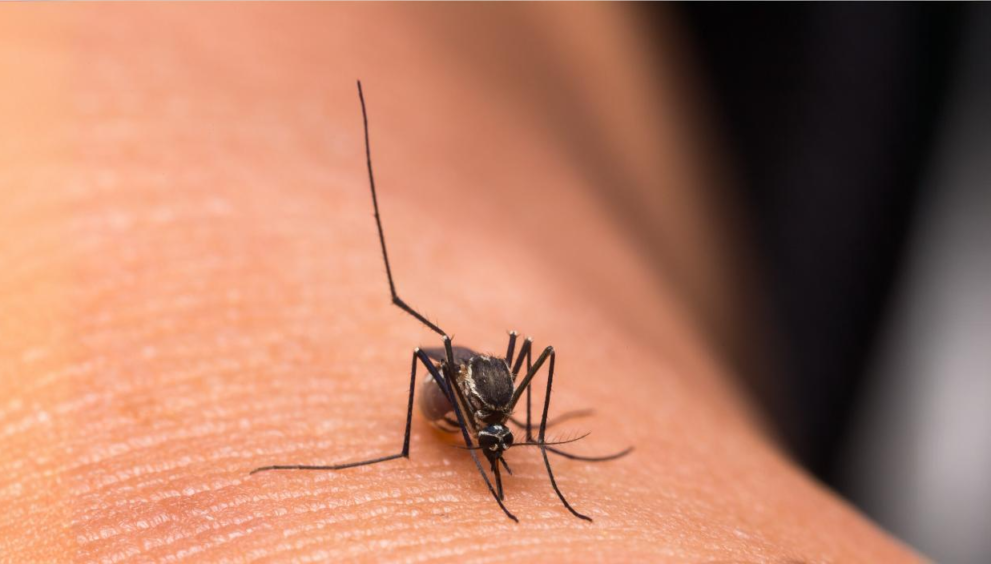India exits WHO’s high-burden malaria list, aims for zero cases by 2030
Malaria cases in the WHO South-East Asia Region dropped by 82.4% from 2000 to 2023, with India accounting for a significant portion of the decline
Author
Author
- admin / 1 year

- 0
- 3 min read

Author
India has officially exited the World Health Organization’s (WHO) high-burden to high-impact (HBHI) group for malaria, with the country aiming for zero cases by 2030, the World Malaria Report 2024 has revealed.
India celebrated the achievement. “The WHO report recognized India’s advancements as a model for other nations aiming to combat malaria. With sustained efforts, the country remains steadfast in its goal to achieve malaria-free status by 2030, reinforcing its leadership in global health initiatives,” an Indian Press Information Bureau report said, quoting an official spokesman.
According to the report, WHO South-East Asia Region had eight malaria endemic countries in 2023, accounting for 4 million cases and contributing 1.5% of the burden of malaria cases globally. In 2023, India accounted for half of all estimated malaria cases in the region, followed by Indonesia, which accounted for just under one third.
From 2000 to 2023, malaria cases reduced by 82.4%, from 22.8 million in 2000, and incidence reduced by 87.0%, from 17.7 to 2.3 per 1000 population at risk.
“The decrease can mainly be accounted for by a decrease in India of 17.7 million estimated cases and a decrease in incidence by 93%, from 20 to 1.5 per 1000 population at risk. Sri Lanka was certified malaria free in 2016,” the report said
“Between 2022 and 2023, decreases in estimated cases were seen in Bangladesh (9.2%), India (9.6%), Indonesia (5.7%) and Nepal (58.3%). India and Indonesia accounted for about 88% of all estimated malaria deaths in this region in 2023,” the report added.
India described the achievement as “a turning point in its fight against malaria.”
“India’s achievements include a significant reduction in malaria cases and malaria-related deaths between 2017 and 2023,” the government spokesman said. “These achievements reflect the nation’s robust public health interventions and its vision to achieve malaria-free status by 2030.”
India’s malaria progress
India’s epidemiological progress is particularly evident in the movement of its states to lower disease burden categories. From 2015 to 2023, many states in the country have transitioned from the higher-burden category to the significantly lower or zero-burden category.
In 2015, 10 States and Union Territories were classified as high burden (Category 3), of these, in 2023 only two states (Mizoram and Tripura) remain in Category 3, whereas 4 states such as Odisha, Chhattisgarh, Jharkhand, and Meghalaya, have reduced the case-load and moved to Category 2.
Also, the other 4 States, namely, Andaman and Nicobar Islands, Madhya Pradesh, Arunachal Pradesh, and Dadra and Nagar Haveli have significantly reduced the caseload and moved to Category 1 in 2023.
In 2015 only 15 states were in Category 1, whereas in 2023, 24 states and UTs progressed from high/medium-burden categories to Category 1. As of 2023 Ladakh, Lakshadweep and Puducherry are in Category 0 i.e. zero indigenous Malaria cases.
Malaria cases and deaths have dropped by around 80% from 2015-2023, with cases going down from 11,69,261 in 2015 to 2,27,564 in 2023, while deaths falling from 384 to just 83. This dramatic decline reflects the relentless efforts to combat the disease.
The foundation of India’s success lies in its comprehensive and multi-pronged strategy. The National Framework for Malaria Elimination (NFME), launched in 2016, provided a clear roadmap for achieving zero indigenous malaria cases by 2027. Building on this framework, the National Strategic Plan for Malaria Elimination (2023-2027) introduced enhanced surveillance, prompt case management through a “testing, treating, and tracking” approach, and the development of real-time data tracking through the Integrated Health Information Platform (IHIP).
Egypt eradicates malaria, a disease that dates back to the time of the Pharaohs – First Check
Do you have a health-related claim that you would like us to fact-check? Send it to us, and we will fact-check it for you! You can send it on WhatsApp at +91-9311223141, mail us at hello@firstcheck.in, or click here to submit it online.









